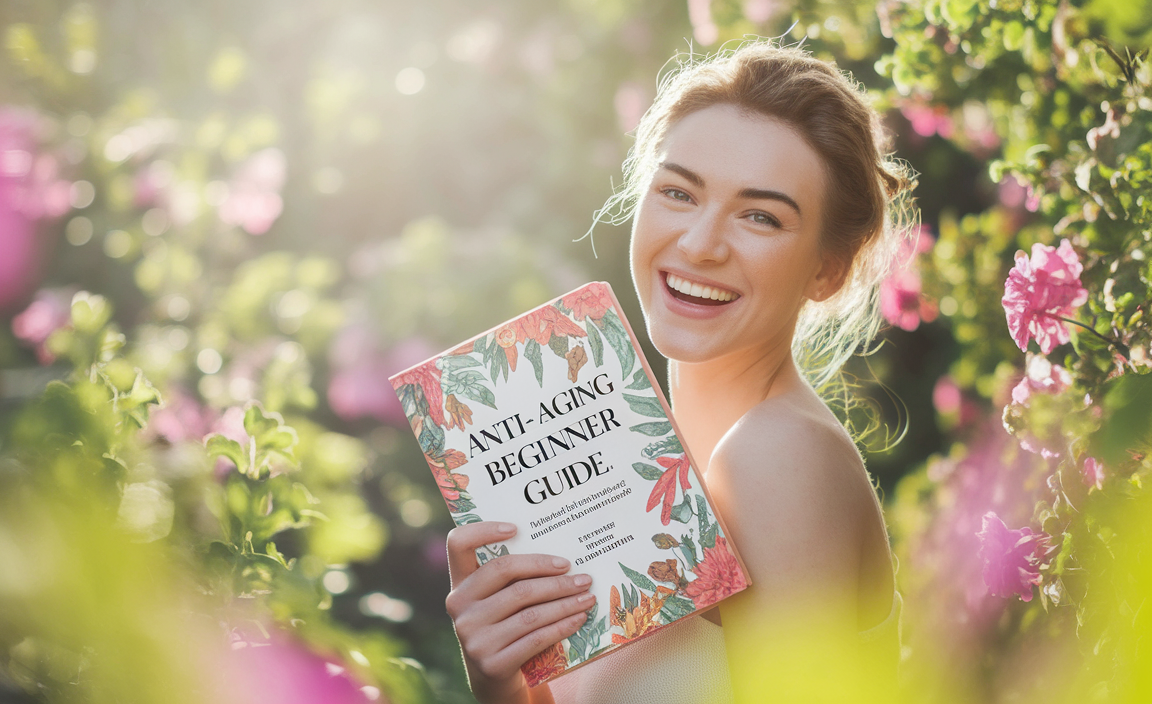Aging is a natural part of life, but that doesn’t mean you can’t age gracefully. With the right lifestyle habits, nutrition, and skincare, you can slow down visible signs of aging and feel younger from the inside out. This anti-aging beginner guide is designed to help you kickstart your journey with practical steps and long-term strategies for looking and feeling your best.

At A Glance
Why Start an Anti-Aging Routine Early?
Most people think anti-aging starts when wrinkles appear. But the truth is, prevention is far more effective than correction. Starting in your 20s or 30s helps protect skin, bones, and internal health—ensuring you stay vibrant well into your later years.
1. Prioritize Skincare Basics
Healthy skin is the first step to a youthful appearance. Start with these essentials:
-
Cleanse: Use a gentle, pH-balanced cleanser twice a day.
-
Moisturize: Keep your skin hydrated with a moisturizer that suits your skin type.
-
Sun Protection: Apply a broad-spectrum SPF 30+ sunscreen daily, rain or shine.
-
Anti-Aging Ingredients: Look for products with retinoids, hyaluronic acid, vitamin C, and peptides.
2. Eat a Youth-Preserving Diet
What you eat directly affects how you age. Focus on:
-
Antioxidant-rich foods: Berries, leafy greens, dark chocolate
-
Healthy fats: Avocados, nuts, olive oil, fatty fish
-
Hydration: Drink plenty of water and limit alcohol/caffeine
-
Avoid processed sugar: It accelerates skin aging through a process called glycation
3. Exercise for Vitality
Regular physical activity supports anti-aging by:
-
Improving circulation
-
Boosting collagen production
-
Enhancing brain function
-
Reducing the risk of age-related diseases
Try this: Incorporate a mix of strength training, cardio, and yoga at least 3–5 times a week.
4. Sleep Like It Matters (Because It Does)
Sleep is when your body repairs itself. Poor sleep habits accelerate aging and reduce immunity.
-
Aim for 7–9 hours of quality sleep per night
-
Establish a consistent bedtime routine
-
Avoid screens 1 hour before bed
5. Manage Stress Effectively
Chronic stress causes inflammation and premature aging. To combat stress:
-
Practice mindfulness or meditation daily
-
Connect with supportive friends or communities
-
Take breaks and schedule regular downtime
6. Avoid Aging Accelerators
-
Smoking: Major cause of wrinkles and dull skin
-
Excess alcohol: Dehydrates and damages skin
-
Too much sun: Leads to dark spots, wrinkles, and skin cancer
Conclusion
Aging may be inevitable, but how you age is largely within your control. Starting with simple lifestyle changes can significantly slow down the process. Focus on consistency, healthy habits, and self-care. The sooner you start, the better your chances of aging beautifully inside and out.
FAQs: Anti-Aging Beginner Guide
1. What age should I start an anti-aging routine?
It’s best to start in your mid-20s or early 30s, but it’s never too late to benefit from anti-aging habits.
2. Is sunscreen really necessary every day?
Yes! UV rays are one of the biggest causes of premature aging, even on cloudy days.
3. Do anti-aging creams really work?
Some ingredients like retinol, peptides, and vitamin C have proven results in reducing fine lines and boosting collagen.
4. Can diet really impact aging?
Absolutely. A nutrient-rich diet can protect your cells, promote skin health, and reduce inflammation.
5. How does sleep affect aging?
During sleep, your body repairs cells and produces collagen. Poor sleep accelerates aging signs like wrinkles and dull skin.
6. How can I reduce stress to prevent aging?
Try meditation, journaling, nature walks, or any hobby that relaxes you regularly.
7. Do I need supplements for anti-aging?
It depends on your diet and health status. Common supplements include collagen, vitamin D, omega-3s, and antioxidants—but consult a healthcare professional first.